There was a celebrated two-word come-on to 1930s movie-goers. “Garbo Laughs!” was a poster strapline calculated to seduce fans of the mournful Swedish star to Ninotchka, in which her character had an unwonted fit of the giggles. Audiences were rather more conflicted when another cinematic embargo was ended. In The Great Dictator, Chaplin talks.
He took his time: 1940 was 13 years after The Jazz Singer. The greatest star of the silent age chose to stick with what he knew, and cast Luddite aspersions on the new-fangled talkies. It was the rise of Nazism which persuaded him to succumb fully to sound. To mark the event, he billed himself as Charles Chaplin rather than the diminutive by which the globe knew him. Not that he erased all vestiges of the Tramp, so adored in films such as The Kid (1921).
The Great Dictator and The Kid are both being released in crisp new digitised versions, as well as on Blu-ray, which affords a chance to compare and contrast the two Chaplins: the beloved circus sentimentalist on the one hand, and the fearless activist on the other, whose political affiliations proved so distasteful to McCarthyite America.
 Not that one film entirely embodies the one point of view to the exclusion of the other. The Kid was Chaplin’s effort to fold social action into slapstick comedy – “a picture with a smile,” as he described it, “and, perhaps, a tear.” The Tramp finds himself accidentally adopting an orphan baby who has been abandoned by his destitute mother. The squalor in which we find them five years later constituted Chaplin’s critique of society’s contempt for the poor. It was fine for a Tramp to shuffle comedically through life with no available funds - not for a cute little scallywag to live in rags too. And make no mistake, Jackie Coogan as the Kid (pictured above right) gave a captivating performance. As the big screen's original child star, he no doubt contributed to an unprecedented commercial success for Chaplin. In one dream sequence, The Kid also parades Chaplin’s less heralded gift for surreal experimentation.
Not that one film entirely embodies the one point of view to the exclusion of the other. The Kid was Chaplin’s effort to fold social action into slapstick comedy – “a picture with a smile,” as he described it, “and, perhaps, a tear.” The Tramp finds himself accidentally adopting an orphan baby who has been abandoned by his destitute mother. The squalor in which we find them five years later constituted Chaplin’s critique of society’s contempt for the poor. It was fine for a Tramp to shuffle comedically through life with no available funds - not for a cute little scallywag to live in rags too. And make no mistake, Jackie Coogan as the Kid (pictured above right) gave a captivating performance. As the big screen's original child star, he no doubt contributed to an unprecedented commercial success for Chaplin. In one dream sequence, The Kid also parades Chaplin’s less heralded gift for surreal experimentation.
19 years on, in The Great Dictator, Chaplin had by no means abandoned his zest for slapstick – for chucking messy food around and nimbly ducking punches thrown by big ugly lunks. He even attempted a half-hearted repeat of the most skilful sequence in The Kid – the rooftop chase in which he retrieves the kid abducted by the authorities. But these familiar tropes were put in the service of a pioneering satire of National Socialism. No Hollywood studio had dared to lampoon Hitler even after seven years in power, so it fell to the financially independent Chaplin to wield an endearingly blunt mallet.
 It was a fitting way to break his silence. It’s set between the two world wars, “an interim in which Insanity cut loose, Liberty took a nose dive, and Humanity was kicked around somewhat”. Chaplin, identified the world over by his toothbrush moustache, took to the role of his doppelgänger “Hynkel” with wonderful aplomb (the film also had parts for "Herring" and "Garbitsch", pr. Garbage, and a buffoonish dictator called Napoloni). In the film’s most outlandish (and famous) sequences, Hynkel spouts rasping, sclerotic gobbets of Teutonic-sounding gibberish to vast rallies, or to secretaries taking dictation.
It was a fitting way to break his silence. It’s set between the two world wars, “an interim in which Insanity cut loose, Liberty took a nose dive, and Humanity was kicked around somewhat”. Chaplin, identified the world over by his toothbrush moustache, took to the role of his doppelgänger “Hynkel” with wonderful aplomb (the film also had parts for "Herring" and "Garbitsch", pr. Garbage, and a buffoonish dictator called Napoloni). In the film’s most outlandish (and famous) sequences, Hynkel spouts rasping, sclerotic gobbets of Teutonic-sounding gibberish to vast rallies, or to secretaries taking dictation.
But when acting in his own language, it’s clear why Chaplin eschewed sound for so long: like Lina Lamont in Singin’ in the Rain, he didn’t quite have the chops for it. This is clearest in the subplot featuring a Jewish barber, also played by Chaplin, whom the regime confines to a concentration camp. His spoken voice is fluting, polite and generally at odds with the eccentricities of his ungovernable body.
 Plot-wise the entire film is not entirely satisfactory – but then as The Kid amply proves, plot is not what you go to Chaplin for. What’s interesting, also slightly uncomfortable, is to watch the unresolved conflict between long-ingrained instincts to communicate to audiences through his physicality, and the requirement to sell a joke vocally. In that sense, The Great Dictator is a work-in-progress, a laboratory full of experiments, some of them failures. All of the most satisfactory gags are visual, many pulled off with as much dazzling invention as anything in The Kid.
Plot-wise the entire film is not entirely satisfactory – but then as The Kid amply proves, plot is not what you go to Chaplin for. What’s interesting, also slightly uncomfortable, is to watch the unresolved conflict between long-ingrained instincts to communicate to audiences through his physicality, and the requirement to sell a joke vocally. In that sense, The Great Dictator is a work-in-progress, a laboratory full of experiments, some of them failures. All of the most satisfactory gags are visual, many pulled off with as much dazzling invention as anything in The Kid.
The most beautiful finds Hynkel in a silent pas de deux with a blow-up globe - his dream being to conquer the real thing. Even if its intention is to make Hynkel – and by extension Hitler – look ridiculous, Chaplin cannot quite suppress the intoxicating grace of his movements. Hitler is said to have watched the film twice. No wonder.
- Find The Kid and The Great Dictator on Amazon

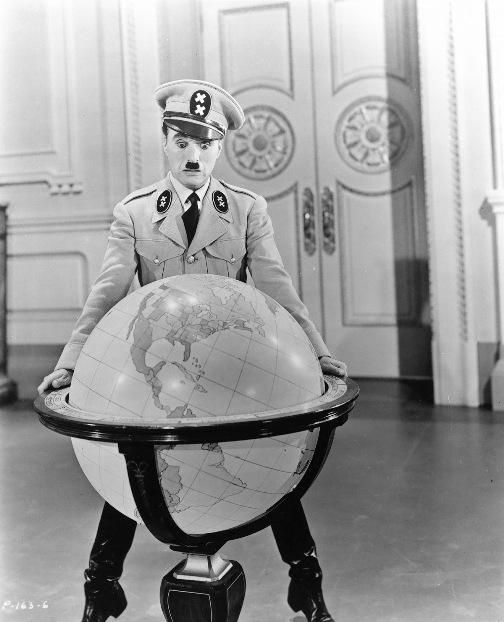




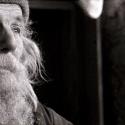

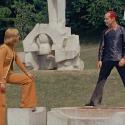
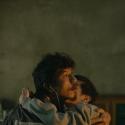
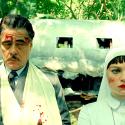

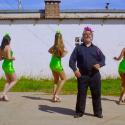

Comments
Add comment